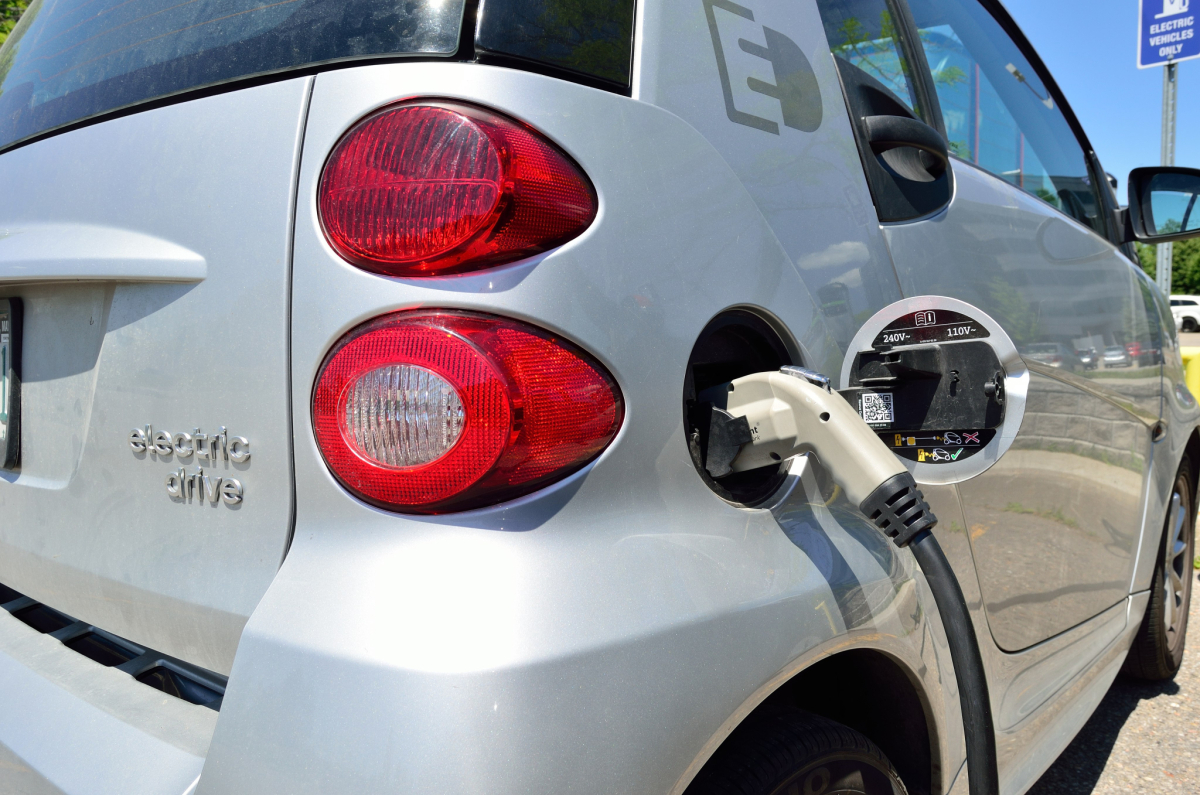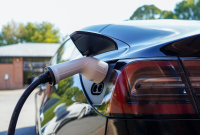A decision by Umicore to suspend construction of an Ontario battery plant could harm local employment and economic growth and hinder potential investments in the area, experts say. The battery materials giant announced last week it was postponing construction of its $2.7 billion battery components plant in Loyalist Township for at least 18 months due to a decline in electric vehicle sales. The plant slowdown is a blow to the township, which was looking forward to the creation of 600 jobs, and the potential to manufacture sufficient battery materials to support the production of over 800,000 EVs per year.
“The project was expected to create numerous jobs during both the construction and operational phases,” said Sheldon Williamson, a professor at Ontario Tech University with a focus on EV battery systems. “The suspension will mean these jobs are now on hold or lost, affecting local employment rates.”
The construction and operation of the plant would have generated substantial economic activity in the region, leading to increased demand for local services and businesses, but now, “The suspension will most definitely halt this anticipated economic boost,” he added.
Loyalist Township Mayor Jim Hegadorn expressed cautious optimism about the situation. “We have been aware of the changing EV market and recent announcements in the industry which have resulted in slower-than-anticipated demand,” Hegadorn said. “It’s important to note that the plant has not been canceled, but Umicore is delaying additional spending on the construction of the plant until they’ve reached the conclusions of the review of their battery materials business.”
Hegadorn said he has been told that staff who are already working at Umicore will not be let go.
“Umicore has advised that there will not be staff layoffs and the team is continuing to move forward,” he said.
Loyalist staff are meeting with local Umicore management this week to gain a better understanding of the implications of Umicore’s financial results for the first half of 2024. Hegadorn noted that Umicore representatives expect to provide more clarity on the review later this fall and will continue with permitting and approved site work to minimize scheduling impacts.
Umicore’s trepidation over the EV market was backed by S&P Global Mobility which found the battery industry is grappling with significant challenges as enthusiasm for electric vehicles (EVs) declines. The sector is now confronted with oversupply, underutilized capacity, and reduced returns on investment.
According to S&P Global Mobility, the EV market experienced unexpected setbacks last year. As interest in EVs wanes, new issues have emerged, including inadequate charging infrastructure, long charging times, and the high initial costs associated with EV ownership. Addressing these fundamental challenges may take years or even decades.
"This volatility can deter large investments,” Williamson said. “The preparedness of countries to host large factories involves not just infrastructure but also policy stability, incentives, and a skilled workforce.”
To attract investments, Williamson suggests that Canada needs to offer more robust financial incentives and subsidies to reassure investors — despite the plant having already been promised nearly $1 billion in federal and provincial subsidies. Williamson emphasized the importance of investing in infrastructure to support large manufacturing projects, including transportation and energy facilities
The slowdown in the EV market has ripple effects across the industry. Major automakers are reassessing their plans, with Volkswagen postponing its decision on a fourth battery plant in Europe and Ford scaling back its $3.5 billion battery plant plans in Michigan due to disappointing EV demand and rising labor costs. Panasonic, a key supplier for Tesla, may delay investments in expanding battery production capacity. According to S&P Global Mobility, this cooling demand has led to a notable decrease in prices for essential battery materials such as nickel, cobalt, and lithium, which plummeted in 2023 and are projected to decline further in 2024.
The challenges facing the EV market also have significant implications for Canada.
Ford Motor Company recently announced a two-year delay in the launch of electric vehicle production at its $1.8 billion Oakville Assembly Complex in Ontario. Initially intended to be a hub for EV manufacturing, the plant will now produce gas-powered F-Series Super Duty trucks instead. Ford indicated that the delay would allow the consumer market more time to mature and provide opportunities for advancements in EV battery technology.
In its financial results announcement, Umicore reported revenues of C$2.6 billion, a decline from C$3.1 billion in the same period last year.
Umicore CEO Bart Sap said the company's short- and medium-term growth projections for the EV market have been significantly downgraded, impacting operations. The ongoing review will focus on reassessing growth expectations, optimizing current assets, and exploring new opportunities.
“Our short-term outlook in battery materials is clearly disappointing,” Sap wrote. “At the same time the electro-mobility trajectory is and will not be linear, like in any other significant industry transformation.”






Comments
A growth economy based on manufacturing, electrification and mining is the problem not the solution. Batteries need mining that urban people never see, blinkering them to the real cost, the ecological and biodiversity costs of misguided climate change "solutions". Batteries need lithium, for instance, along with other mined elements, and every tonne of mined lithium results in 15 tonnes of CO2 emissions in the environment. In addition, it is estimated that about 500,000 litres of water are needed to mine approximately 2.2 million litres per tonne of lithium. This substantially impacts the environment, leading to water scarcity in already arid regions. If we were to be honest, we would acknowledge that a growth economy, manufacturing, electrifying everything, and mining are only going to compound the ecological and biodiversity crises we have already made.
A few lessons jump out to me.
1. Ref https://www.ou.edu/deptcomm/dodjcc/groups/99A2/theories.htm
The innovators now have their EVs, and we're awaiting for the bulk of early adopters to pick up the torch.
2. If Ford is falling back on ICE 'F' series trucks, clearly the regulatory regime (e.g. fleet fuel efficiency standards) is lacking, as it has been for decades.
3. Manufacturers might be trolling for more of our public money.
Don't bite.
4. We'll have to closely watch what happens in the ongoing trade conflicts between the USA and China vis-a-vis China's cheap EVs.
5. This posturing reinforces, as if we really require more reasons, the need for us to redesign our built environment to reduce both energy consumption writ large and our dependency, at least in urban environments, on private vehicles to get around.